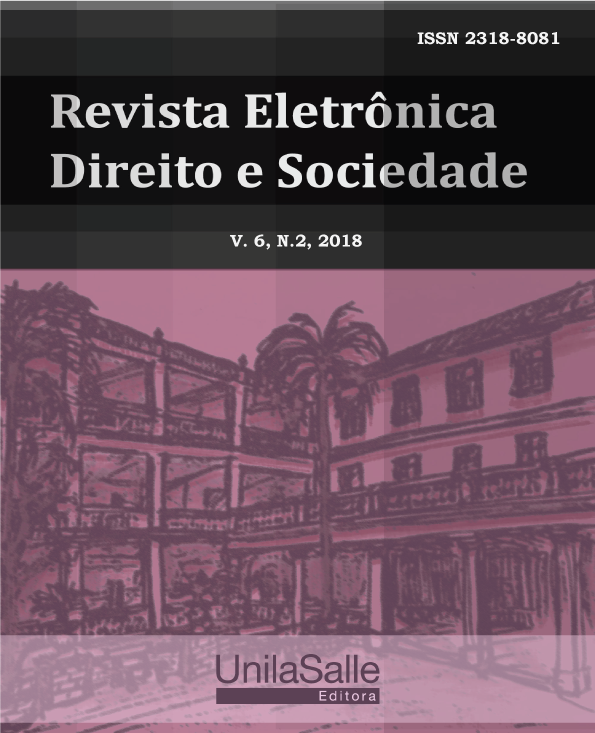A restrição à liberdade de expressão e ao direito à informação na era da sociedade da informação: caso da suspensão dos serviços do aplicativo WhatsApp
DOI:
https://doi.org/10.18316/redes.v6i2.4775Palavras-chave:
Meio Ambiente Digital, Segurança Pública, Liberdade de Expressão, WhatsApp, Controle de Constitucionalidade.Resumo
Desde 2015, o aplicativo conhecido como WhatsApp tem sofrido uma série de bloqueios dos seus serviços em decorrência de decisões judiciais no Brasil como forma de punição diante da recusa da empresa, proprietária do aplicativo, de entregar os dados de seus usuários, ou ainda, permitir a interceptação deles. As fundamentações de tais decisões polêmicas têm como argumento a proteção da segurança pública, tendo como resultado um aparente conflito entre dois direitos fundamentais, debate que não se restringe apenas à esfera nacional e que resultou na ADPF 403 proposta pelo Partido Político PPS perante o STF e que, atualmente, encontra-se pendente de julgamento pelo plenário da Corte, podendo se tornar num marco de proteção do direito à liberdade de expressão e de informação, preconizadas na Constituição Federal de 1988, sob a égide da já caracterizada sociedade da informação. Com a pretensão de analisar referidas decisões judicias à luz dos direitos constitucionais que envolvem o caso, esse artigo se pautará por uma análise doutrinária e jurisprudencial, sendo seu método qualitativo de estudo.
Downloads
Publicado
Edição
Seção
Licença
Autores que submetem seus manuscritos para serem publicados na Revista REDES concordam com os seguintes termos:
Os autores declaram ter ciência de que mantém os direitos autorais concedendo à REDES o direito à publicação.
Os autores declaram ter ciência de que o trabalho submetido será licenciado sob a Licença Creative Commons atribuição não-comercial que permite o compartilhamento do artigo com reconhecimento da autoria e publicação nesta revista.
Os autores declaram ter ciência que em virtude de os artigos publicados nesta revista tem acesso público e gratuito.
Os autores declaram, sob as penas da lei, que o texto é inédito e original e que têm ciência de que identificada a existência de plágio, os autores plagiados serão informados – para querendo, tomarem as medidas legais nas esferas cível e criminal – e, os autores do plágio terão seu acesso à revista bloqueado.
Os autores declaram que – em caso de coautoria – todos contribuíram significativamente para a pesquisa.
Os autores obrigam-se a fornecer retratações e (ou) correções de erros em caso de eventual detecção.
Os autores obrigam-se a não publicar o texto submetido a REDES em outra Revista eletrônica (ou não).

A Revista Eletrônica Direito e Sociedade - REDES - está licenciado com uma Licença Creative Commons Atribuição-NãoComercial 4.0 Internacional.
Baseado no trabalho disponível em http://revistas.unilasalle.edu.br/index.php/redes/about/submissions#copyrightNotice.
Podem estar disponíveis autorizações adicionais às concedidas no âmbito desta licença em http://creativecommons.org/.

